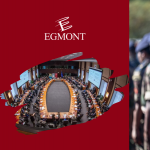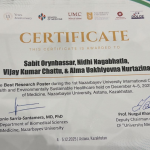UNU-CRIS / BSoG Presidency of the EU Science Diplomacy Alliance

On 1 July, the Unit on Non-Traditional Diplomacy (UNTRAD)–a joint entity of UNU-CRIS and the VUB’s Brussels School of Governance– assumed the next sixth month rotating presidency of the European Union Science Diplomacy Alliance.
Established in March 2021, the Alliance’s goal is to maintain and increase awareness of science diplomacy in Europe through joint research projects, policy advice, capacity building, and training activities. It builds upon the legacies of the three Horizon 2020 projects dedicated to the study of science diplomacy–S4D4C, InsSciDE and EL-CSID–by bringing together and widening the constellation of actors, combining resources, and amalgamating deep pools of knowledge. Currently, the Alliance consists of 24 members and is expected to grow significantly beyond that.
The Alliance was launched under the presidency of the Austrian Centre for Social Innovation (ZSI). From July – December 2021, the project management arm of the German Aerospace Center (DLR-PT) was at the helm of the Alliance, while first half of 2022 saw the Sorbonne Université and the National Scientific Research Center of France (CNRS) drive it forward. Thus, when UNU-CRIS and BSoG step into this roll in a few days, it will be following in the footsteps of prestigious predecessors as it strives to ensure science diplomacy is firmly on the European agenda.
The priorities for the UNU-CRIS/BSoG presidency revolve around the notion of empowerment.
On one hand, it will be to empower the organizational capacities of the Alliance. The impressive work conducted by the Alliance hitherto is even more impressive when considering it does so on a voluntary basis. Thus, one aspect under the pillar of organizational empowerment is to look into establishing a legal personality, acquiring an operating budget, and establishing a small secretariat to support day-to-day functions. While it is unlikely all of this will be realised in only six months–which is why another aim of this presidency is to expand future ones to twelve months–getting the ball rolling now will hopefully build the momentum for an even more robust future for the Alliance. Moreover, the UNU-CRIS/BSoG presidency will bolster the existing working groups of the Alliance whilst creating new ones, such as an administrative and budget committee tasked with investigating the above, and a topical working group that looks at science diplomacy with authoritarian states. Additionally, a mapping will be done of potential new members, aiming to further expand the Alliance’s blossoming network.
On the other hand, the UNU-CRIS/BSoG presidency aims to empower academia in the field of science diplomacy. While science diplomacy has increasingly become a buzzword amongst policy makers, it has yet to infiltrate academic discourse on a wide scale. This can be because science diplomacy has yet to acquire strong theoretical roots, and also because the potential that academic institutions hold as science diplomacy actors is underappreciated. Thus, the second priority will be to empower universities as science diplomacy agents, highlight the role HEIs can play as stewards of the global commons of knowledge, and to continue expanding the theoretical conceptualisations of science diplomacy, with a special focus on the European Universities Initiative. This will be actualised through a couple of events: one being a side event at the UN General Assembly dedicated to HEIs as the vanguards of knowledge diplomacy; the other being a December conference in Brussels with “Thinking, Debating, and Shaping Science Diplomacy as a Field of Studies” as a provisional title.
Since UNU-CRIS belongs to the wider UN family, and BSoG belongs to VUB, which in turn belongs to the EUTOPIA University Alliance, the UNU-CRIS/BSoG presidency of the EU Science Diplomacy Alliance stands to tie a range of networks together as a driving force for science diplomacy, itself a driving force for a better world.




